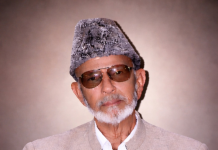Dr. Muhammad Akram Zaheer
The discourse surrounding diversity of thought within UK national security policymaking has emerged as a significant area of inquiry, particularly in light of its implications for identity politics, knowledge production and the broader structures of power that underpin national security institutions. This perspective challenges the traditional notion of the bureaucrat as a disembodied thinker who provides a “view from nowhere”, an ideal rooted in Enlightenment-era conceptions of objectivity and rationality. In theory, this shift could lead to more inclusive and equitable security practices that analyze militarism and prioritize the needs of historically excluded groups. However, its power-evasive framing often undermines the potential for emancipatory politics within this discourse. While some officials advocate for a critical approach that centers the lives of marginalized subjects, the diversity of thought agenda is more frequently co-opted to reinforce the illusion of objective, apolitical knowledge production. This tendency is particularly evident in the ways Conservative ministers have used the discourse to enforce a narrow version of Civil Service impartiality. By framing diversity of thought as a means to achieve bureaucratic objectivity, these ministers paradoxically stifle critiques of structural inequality and obscure the gendered, racialized and classed power relations that shape national security practices. The codified requirement for bureaucratic objectivity, coupled with the power-evasive character of the diversity of thought discourse, renders it susceptible to being used in ways that legitimize hegemonic approaches to security. Rather than exposing how militaristic and colonial logics arise from and uphold systems of patriarchy, capitalism and white supremacy, the discourse often frames these practices as apolitical and banal. This dynamic is evident in the UK’s participation in the invasion of Iraq, where colonial and militaristic logics prevailed despite the availability of alternative perspectives. The failure of diversity initiatives to prevent such policy outcomes raises questions about their capacity to address the root causes of security practices that perpetuate violence and inequality. Moreover, the inclusion of historically excluded groups, while a necessary step, is insufficient to overcome national security institutions’ deep-seated commitment to militarism. Policymakers’ uptake of the diversity of thought discourse primarily reflects their institutions’ material and ideological investment in a militaristic and colonial notion of national security. This investment renders hegemonic approaches to security invisible and beyond critique, positioning them as natural and inevitable rather than as products of specific historical and social conditions. As a result, efforts to embrace challenge and reform following events such as the Chilcot Inquiry are often limited in scope and impact. The case of the diversity of thought discourse exemplifies a broader pattern in which critical discursive interventions are stripped of their radical content when adopted by powerful institutions. This phenomenon invites us to consider the interests that such institutions serve and the material structures that necessitate particular security practices. If, as scholars of racial capitalism and colonialist argue, the primary function of security is to maintain racialized, gendered and classed processes of capital accumulation and resource distribution, then it is unsurprising that diversity initiatives have failed to produce emancipatory approaches to security. Institutions designed to uphold these systems are unlikely to embrace reforms that fundamentally challenge their raison d’être. The increasing taboo surrounding structural power analysis within UK policymaking circles further complicates efforts to address these issues. By highlighting how government policies maintain violent inequalities, such analysis threatens the legitimacy of national security institutions and the power relations they preserve. Alternative approaches, drawing on literatures such as racial capitalism and post-, de- and anti-colonial traditions, offer promising avenues for rethinking security. For example, abolitionist scholarship argues that reforms to security institutions often serve to legitimize their role in protecting racial capitalism, advocating instead for the construction of alternative institutions that address the root causes of social inequalities. Taking seriously the concept of situated knowledge requires a fundamental rethinking of how knowledge is produced and utilized in policymaking. This involves not only expanding who is included in decision-making processes but also reconsidering the purpose of knowledge production itself. Alternative knowledge claims, while often ignored or marginalized within existing paradigms, pose a significant challenge to the processes used by the powerful to legitimate their rule. Accepting that objectivity is illusory and that all knowledge is political undermines the liberal conception of a neutral bureaucracy and the power relations it sustains. This shift raises important questions for further investigation: What would it mean for decision-makers to replace objectivity with a conceptualization of knowledge as situated and imbued with power relations? How might policymaking processes premised on justice rather than impartiality function and who would participate in them? Alternative institutions require alternative epistemologies ones that do not deny the entanglement of knowledge with power relations but instead treat knowledge production as a central component of liberator political praxis.

















